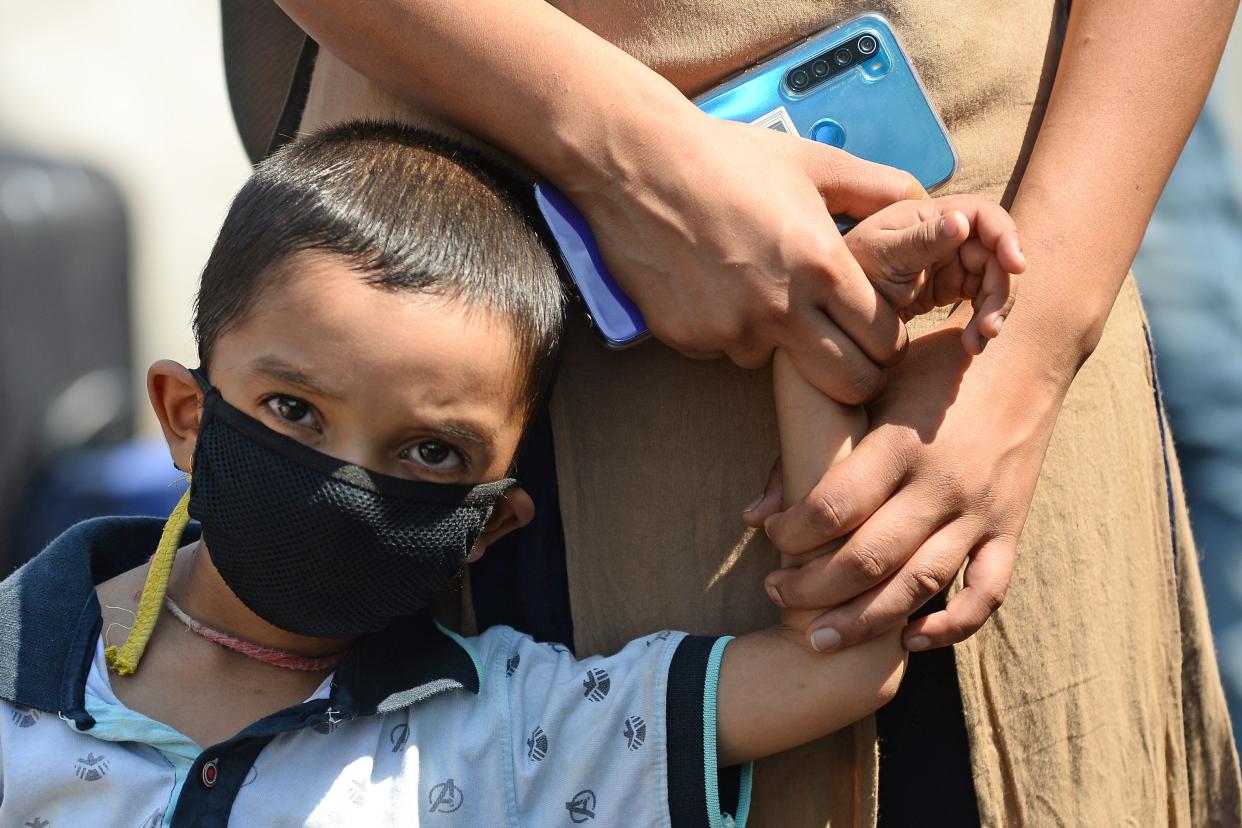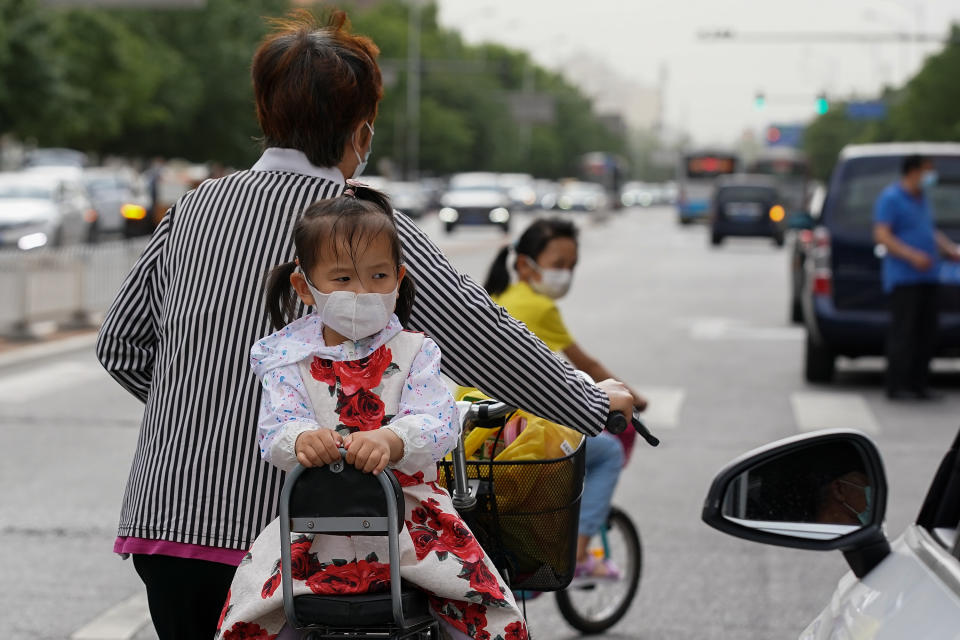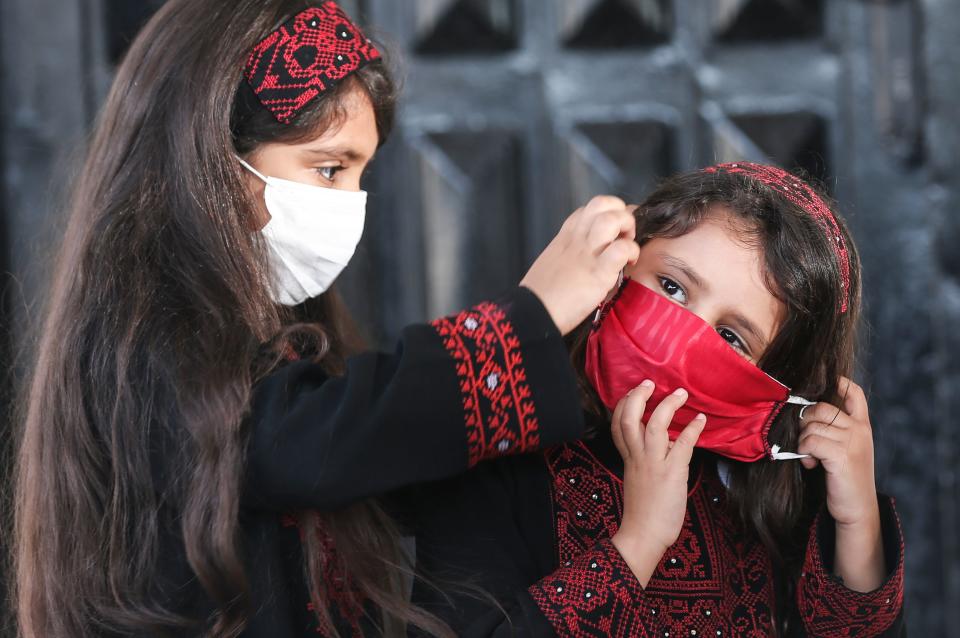Coronavirus: Child deaths could rise by 6,000 a day worldwide due to disrupted health services

The coronavirus outbreak could cause deaths among children to rise by 6,000 a day, research suggests.
An analysis of Unicef figures by John Hopkins University estimates an “additional” 1.2 million fatalities may occur in youngsters under five over the next six months.
This is on top of the 2.5 million children who already die before their fifth birthday every six months.
Experts have warned the “excess” preventable deaths could come about due to a disruption to vaccinations, postnatal care and medical treatments.
Without financial support, the pandemic threatens to reverse nearly a decade of progress on ending avoidable child fatalities worldwide, they added.
Early research suggests the coronavirus is mild in four out of five cases, however, it can trigger a respiratory disease called COVID-19.

Coronavirus: ‘Children’s lives are being upended across the globe’
“This pandemic is having far-reaching consequences for all of us, but it is undoubtedly the biggest and most urgent global crisis children have faced since World War Two,” said Sacha Deshmukh, executive director of Unicef UK.
“Children’s lives are being upended across the globe; their support systems ripped away, their borders closed, their educations lost, their food supply cut off.
“Even in the UK, children face the threat of a measles outbreak and school closures are putting vulnerable children at increased risk.”
Latest coronavirus news, updates and advice
Live: Follow all the latest updates from the UK and around the world
Fact-checker: The number of COVID-19 cases in your local area
Explained: Symptoms, latest advice and how it compares to the flu
More than 117 million children across 37 countries are at risk of missing out on their measles jabs as immunisation campaigns are being cancelled to minimise the spread of the coronavirus.
The UK is continuing to vaccinate against measles as part of its childhood immunisation schedule, but saw a re-emergence of cases prior to the coronavirus outbreak.
‘We all have a duty to protect children’
Scientists at John Hopkins University looked at three different scenarios of how the outbreak could impact 118 low to middle income countries.
The 1.2 million additional child deaths represents the worst-case scenario.
This could occur if global healthcare services are reduced by around 45%, results show in the Lancet Global Health Journal.
In the most optimistic scenario – where health services are cut by around 15% – 1,400 “extra” deaths are expected to occur among the under fives every day, a 9.8% increase on “normal”.
Childhood deaths are largely expected to be due to malnutrition triggering long-term health conditions, as well as reduced treatment for newborn sepsis and pneumonia.
Nearly 370 million children across 143 countries rely on school meals for a reliable source of nutrition.
Close to 1.3 billion students are not attending school as a result of closures in 177 countries.
When it comes to maternal deaths, the most optimistic scenario predicts an 8.3% rise.
In the worst-case, there could be a 38.6% increase per month.
This is in addition to the 144,000 maternal deaths that already take place across many countries over six months.
To help combat this, Unicef UK is launching its biggest ever appeal to tackle the impact of the coronavirus on the world’s most vulnerable children and families.
The “Save Generation Covid” appeal aims to supply vital medical equipment, while tackling dangerous misinformation and promoting virus-prevention campaigns.
“We cannot allow almost a decade of progress on ending preventable child deaths to become undone on our watch,” said Deshmukh.
“If we have learned anything from this crisis, it’s that our lives are interconnected, and we all have a duty to protect children and families around the world.
“We urgently need the UK public to support Unicef UK in our biggest ever appeal and help us save the COVID generation, and ensure children around the world survive this crisis – and thrive beyond it”.

What is the coronavirus?
The coronavirus is one of seven strains of a virus class that are known to infect humans.
Others cause everything from the common cold to severe acute respiratory syndrome (Sars), which killed 774 people during its 2002/3 outbreak.
Since the coronavirus outbreak was identified, more than 4.2 million cases have been confirmed worldwide, according to Johns Hopkins University.
Of these cases, over 1.4 million are known to have “recovered”.
Globally, the death toll has exceeded 287,000.
The coronavirus mainly spreads face to face via infected droplets expelled in a cough or sneeze.
There is also evidence it is transmitted in faeces and can survive on surfaces.
Symptoms include fever, cough and slight breathlessness.
The coronavirus has no “set” treatment, with most patients naturally fighting off the infection.
Those requiring hospitalisation are given “supportive care”, like ventilation, while their immune system gets to work.
Officials urge people to ward off the coronavirus by washing their hands regularly and maintaining social distancing.



